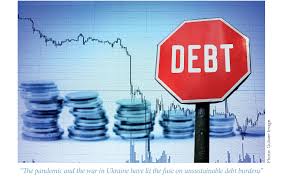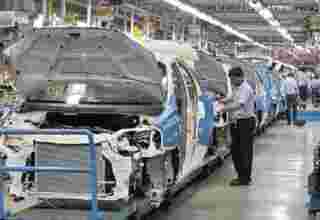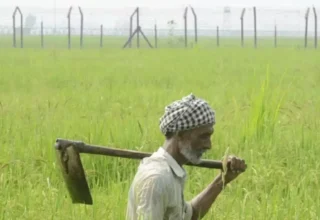ISLAMABAD, October 19, (INP-WealthPK): The long-term indication of a country’s economic growth is measured by the capacity and production of its steel industry. It is therefore essential that the steel industry is developed for Pakistan’s rapid and long-term development.
These remarks were made by the Coordinator to Federal Tax Ombudsman (FTO) Meher Kashif Younis, while talking to a delegation of business leaders and industrialists.
Meher said that “iron and steel industry is the bottom-line industry. It is the mother of all industries. It helps all other secondary industries and contribute towards national development.”
“The steel industry should be prioritized over other industries. The steel industry, if works on full capacity, will be able to produce production capital for other industries. A lot of machinery is imported from abroad. We need to develop our steel and iron capacity to produce such heavy machinery here at home,” he said.
“Importing steel and iron products from abroad tells a story of its own. We are dependent on outside world for things which we can produce here on our own. There is a gap in demand and supply of steel and iron products. This gap is filled by imports. This is not a viable policy and we urgently need to take steps to revive our iron capacity,” he said.
“There is a huge demand of iron and steel products abroad. We have the potential to develop our capacity to meet that demand by being a net-exporter of iron and steel products. We have a dormant Pakistan Steel Mills in Karachi and the Gadhani ship breaking yard does not have enough capacity to meet the needs,” he added.
He said that “steel is also recyclable and, therefore, unlikely to run out like fossil fuels. About 88% of steel is recycled throughout the world and unlike other recycled materials, steel never loses its strength during recycling. This is the reason that ship-breaking, which is part of the steel sector, is so important.”
“Our demand of steel was met by ship-breaking only to the extent of 15%. Therefore, there is a huge supply gap. Large scale manufacturing (LSM) relied heavily on steel and iron production. They themselves are part of LSM. All industrial sectors and also the agriculture sector relied on steel and iron production for their tilling equipment,” he said.
“It is impossible to think of any sector which is not dependent on it. The per capita use of steel in Pakistan is only 35 kg as compared to the last year’s global average of 233 kg. This is one of the key points that should concern policymakers. So, policymakers should devise a master plan which strengthens the industrial base rather than only focusing on textile and clothing sectors,” he emphasized.
“Reviving the steel industry will help all the other industries of the country. Their development is not mutually exclusive. Increasing the production of iron and steel will yield more benefits to the country than any other in the long-term,” he added.
“The share of iron and steel industry in industrial production is only 1.6%, whereas in large scale manufacturing it is only 3.4%. This is a very small average given the global average. We will not get to anywhere unless we make our own iron and steel,” he continued.

























